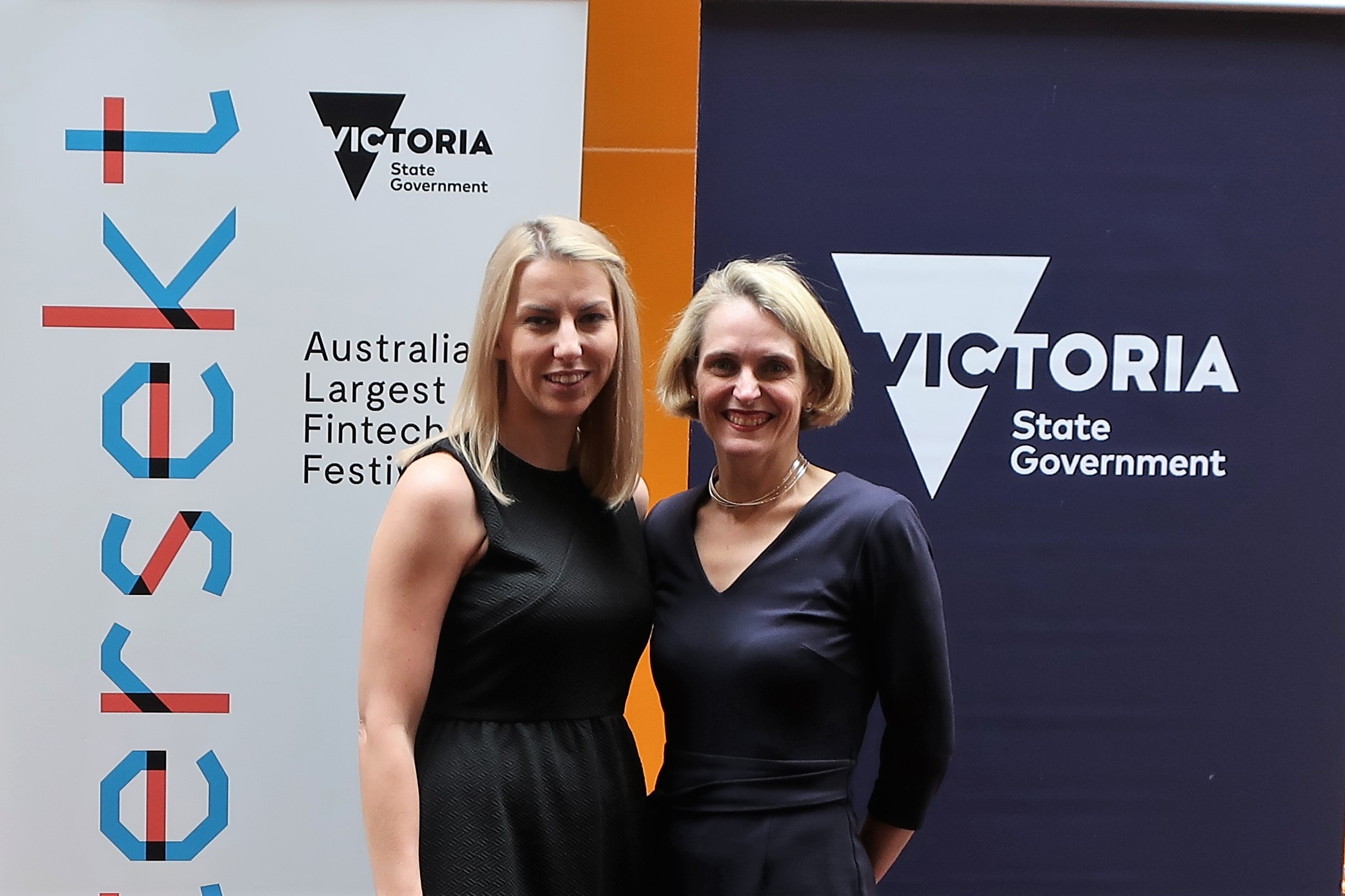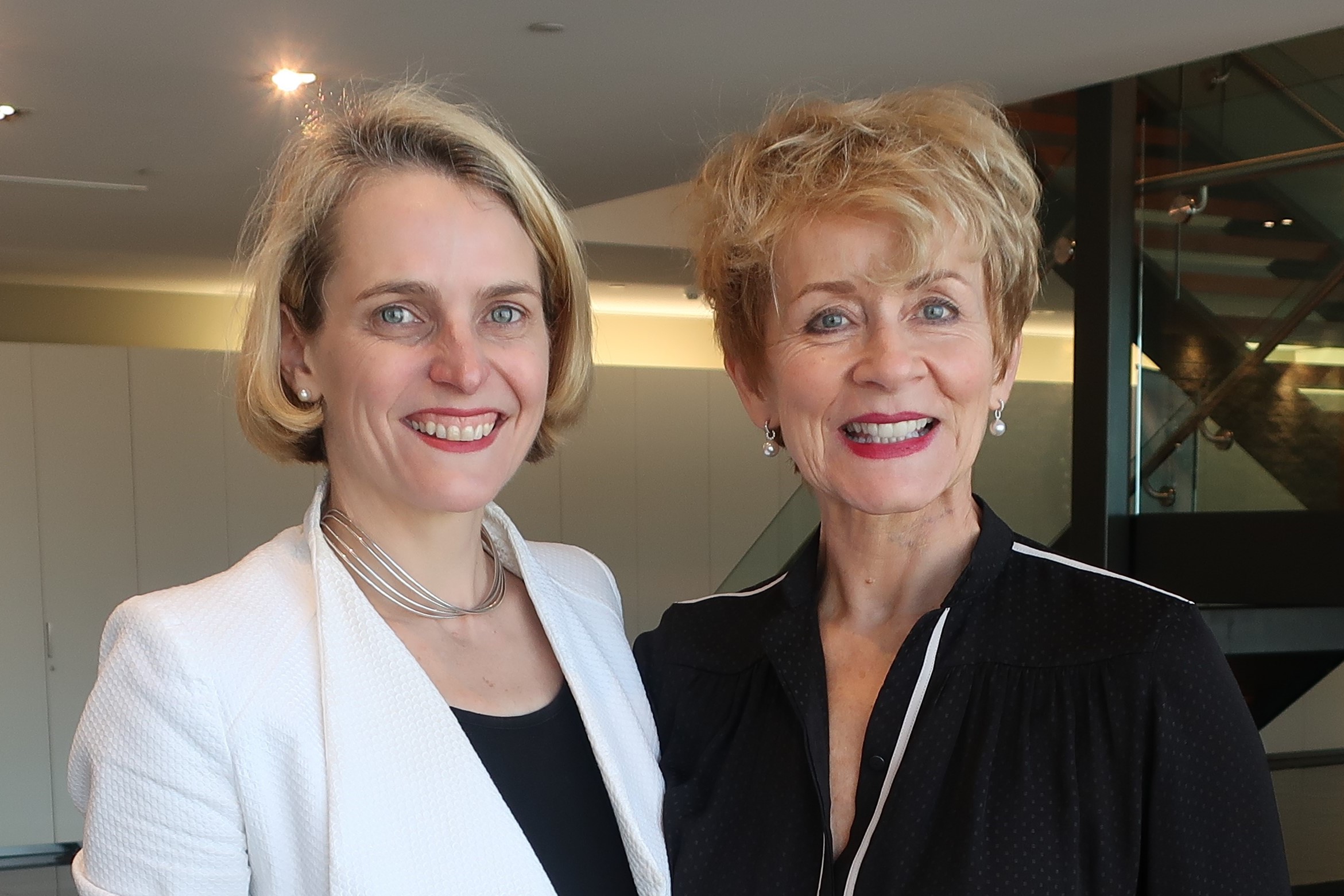
Market Update – December 2017
14/12/2017
Tech startup success; big ideas don’t matter – taking action does
10/01/2018Issue 3, December 2017
From the MD's Desk

Welcome to Affinity Insights
With the festive season right around the corner, it seems like a great time to reflect on what we’ve accomplished, the journey we have taken to get to where we are and the plans we have for an exciting, bright future.
In this last quarter, we have welcomed Senior Adviser Tony Vikram to the team, introduced Pocketsmith; a personal finance tool enabling real time tracking of your cashflow and balance sheet and Catherine has travelled to the United States where she recorded interviews with influential business leaders for her ‘Success Stories’ podcast series.
I would like to personally thank you for your continued support and commitment during the year. It has been a year of transition, growth and innovation at Affinity Private and we are concluding the year stronger and better equipped to serve you in 2018.
During this time, we reflect on the spirit of giving and being thankful for all that we have and as a sign of our support to the community, we have donated our time and resources to not-for-profit organisations; Kids Cancer, FareShare and Very Special Kids.
Please enjoy some well-deserved rest with family and friends during this holiday season.
Warm regards,
Rodney M. DeGabriele

Introducing our Senior Adviser

Tony Vikram – Senior Adviser
Tony has been the trusted adviser to high net worth individuals, businesses and managed mandates on behalf of not-for-profits during his career. Tony has an innate desire to help people achieve their personal goals by assisting them to build and protect their wealth. He feels privileged to be a confidante to his clients and treats this role with honesty and integrity.
In addition to working in private wealth, Tony’s expertise in the business banking sector has broadened his knowledge of the industry. An engineering degree completed in his early years of education highlighted Tony’s passion for analytics.
This drew him into private client advisory, where he holds a CFP qualification, the highest qualification in his chosen field of Financial Advice. Tony is committed to building Affinity Private and delivering superior outcomes for all his clients.
We welcome Tony to the team.
Success Story Podcasts

In November, Catherine spent two weeks in the US interviewing business leaders for her Success Stories podcasts, which she hosts for Alan Kohler’s publication The Constant Investor.
Interviews included Lisa Shalett, Global Head of Investment and Portfolio Solutions at Morgan Stanley Wealth Management, Heidi Ridley, Iranian born CEO of AXA Rosenberg, Uschi Schreiber, member of Ernst & Young’s Global Executive Board and Chair of the Global Accounts Committee and, Amy Herman, who has trained the FBI, CIA and many other professionals to enhance their perception by studying fine art. Her book ‘Visual Intelligence’ is in the process of being made into a movie by Fox Studios.
The podcasts will be released in coming weeks, with numerous actionable insights, available on our website, iTunes and at The Constant Investor.
Admin Updates
Office hours
Our office will be closed from 5pm on Friday, 22nd December 2017, and we will re-open at 9am on Monday, 15th January 2018.
If you have any queries during this time, please email enquiries@affinityprivate.com.au
Macquarie Wrap – Adviser Fee GST reduction
The Australian Tax Office (ATO) has issued a private ruling that as of 1 November 2017, clients will be able to claim reduced input tax credits (RITC) on adviser fees paid in Macquarie’s investment service (IDPS) accounts.
Claiming RITC through the IDPS (Investment Consolidator, Investment Manager and Investment Accumulator) will reduce the GST cost borne by clients on adviser fees from 10% to 2.5%. A significant saving for all clients on Macquarie Wrap.
You don’t need to do anything for the reduced GST cost to apply. If you have any queries regarding your Annual Statement, please email us at enquiries@affinityprivate.com.au or telephone the office on 1300 769 304.
Technical News
The First Home Super Saver Scheme Explained

The First Home Super Saver Scheme is aimed at assisting certain individuals purchase their first home.
The Treasury Laws Amendment allows individuals who are saving for a deposit on their first home to make voluntary contributions to super. These contributions could be subsequently withdrawn to pay a deposit on the individual’s first home.
This opportunity applies only to eligible individuals who make voluntary contributions on or after 1 July 2017. Voluntary contributions will be limited to $15,000 per year (up to a total of $30,000). These contributions will count towards the relevant contribution cap.
From 1 July 2018, individuals will be able to have 100% of eligible non-concessional contributions (NCCs) and 85% of eligible concessional contributions (CCs) plus ‘associated earnings’ withdrawn from super.
Taxable amounts (CCs and associated earnings) will be taxed at the person’s marginal tax rate less a 30% tax offset. The net proceeds must be used to purchase a home within 12 months.
General eligibility criteria
An individual is eligible to make contributions and withdrawals under the scheme if that person:
- has not held a freehold interest in Australian real property before
- is aged 18 years or older; and
- has not previously requested a release from superannuation under this scheme.
Eligible contributions can only be made from 1 July 2017 and include voluntary:
- personal contributions
- sacrifice contributions, and
- additional employer contributions.
It does not include:
- excess CCs or NCCs
- mandated employer contributions including super guarantee (SG)
- spouse or child contributions
- Government co-contributions
- contributions made on behalf of the person by another individual or entity
- voluntary contributions made to defined benefit (DB) or constitutionally protected (CP) fund(s), and
- contributions required by the member under the fund rules.
The maximum eligible contributions that count towards the amount that can be released are:
- $15,000 per financial year, and
- a total $30,000.
Voluntary contributions made in excess of these limits cannot be released under the scheme.
Releasing eligible contributions
To have eligible funds released under the scheme, the individual needs to:
- apply to the ATO to determine the maximum amount they are eligible to withdraw, and
- request a release authority.
For more information regarding the First Home Super Saver Scheme, please visit The Australian Taxation Office website.
In the Media

It might come as a surprise to some investors but when housing bubbles collapse, it doesn’t always mean a financial crisis will follow.
Likewise, not all financial crises are caused by a savage drop in house prices, but a research paper published by the Reserve Bank of New Zealand shows why investors should be worried when a property market does go pear shaped.
For a start, when house prices collapse there’s more of a chance that the banks, which have lent the money, end up in trouble, while any fallout leads to far more destruction than a sharemarket crash.
If there is an upside to a sharemarket crash, it is that they usually end very quickly.
These are a few of the findings of Maitland MacFarlan, a contractor to the RBNZ , who has had a forensic look at a range of house price collapses around the world since the late 1980s.
In addition to housing and the global financial crisis, MacFarlan has also taken a look at the Nordic financial crises that kicked off in the late 1980s and the Asian financial crisis that played out a decade later.
Amid all the talk of a booming property market in Sydney and Melbourne over the past few years, and what risks have built up around that bubble, neighbouring New Zealand has had a similar problem with booming house prices in Auckland.
It’s a major reason why the RBNZ got MacFarlan to take a look at all the risks around the housing market and some of his findings are very interesting.
V-shaped event
One reason why investors should be worried about a collapse in house prices is that more than likely there will be a bust.
It doesn’t always follow but the odds are it will happen.
He notes ” the cycle of booms followed by busts appears stronger with house prices than with equities”.
According to the report, almost half of all housing booms end in a bust while only 25 per cent, or less, of sharemarket booms end in tears.
And when there is a sharemarket crash it goes for two years and then a couple of years later all the losses have been recouped.
Call it a V-shaped event.
But when house prices collapse it tends to be a long, drawn-out affair, even if they don’t fall as far as shares do when they crash.
“House price collapses last significantly longer than equity busts” says MacFarlan.
“While house prices may fall by less than equities in a bust, they show a more protracted, U-shaped pattern of downturn and recovery, with downturns lasting around four to six years,” he adds.
Soft landings rare
Unfortunately, local investors get the worst of both worlds in that situation, given the big four banks account for 25 per cent of the S&P ASX 200 index.
If house prices collapse and the banks end up with a few problems, it makes it tough for the sharemarket and also to navigate any slowdown in the economy.
Another worrying discovery is that “soft landings” in the housing market are rare.
They just don’t happen very often.
Indeed, one study of 49 boom and busts showed there were no examples of a “mild’ or “gradual” fall in residential investments.
For all those reasons, a fallout in the housing market is a very good indicator of tough times ahead in any economy and can have twice the negative impact that a sharemarket crash has.
“In particular, the impact of housing busts on output, wealth, credit growth and other macroeconomic measures tends to be greater than with equity price collapses, a result in part of deeper imbalances that need to be unwound” notes MacFarlan.
There are several lessons for central banks in all of this.
Slashing interest rates and government spending can help ease the pain of any economic downturn when house prices fall but they don’t help so much with any recovery.
Furthermore, any time a central bank uses “unconventional monetary measures” to fix up the mess, it usually leads to other problems.
Finally, with a pointer to the big banks and their offshore funding, any “unhedged foreign currency borrowing, often driven by the (mis)perception of exchange rate stability, can quickly lead to severe economic and financial difficulties if external funding dries up and the exchange rate falls following a crash”.


